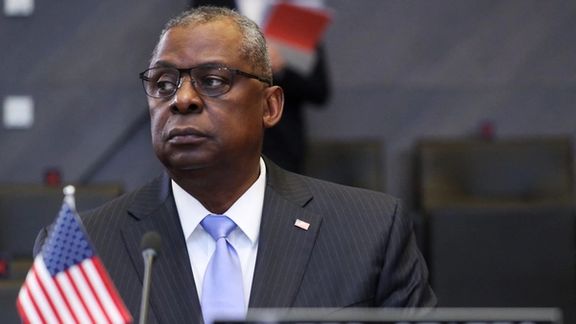US Defense Chiefs Face Questions On Soft Approach To Iran’s Proxies

Top US defense chiefs faced criticism from the Senate Armed Forces Committee Tuesday claiming the response to Iranian attacks on US forces is weak and lacks deterrence.

Top US defense chiefs faced criticism from the Senate Armed Forces Committee Tuesday claiming the response to Iranian attacks on US forces is weak and lacks deterrence.
Of 83 attacks in Iraq and Syria since President Joe Biden took office, just four retaliations have taken place. Last week, two attacks targeted bases in Syria killing one American contractor and injuring several servicemen.
Senator Tom Cotton, addressing the United States Secretary of Defense, Lloyd Austin, said, “What kind of signal do we think this sends to Iran when they can attack us 83 times since Joe Biden has become president and we only respond four?”
The weak US approach to Iran has been a thorn in Biden’s side as the Democrats try to keep channels open with Tehran in the hope of reviving the nuclear deal, the JCPOA. Long-running talks to restore mutual compliance with the accord broke down last year after Iranian intransigence.
Senators voiced similar criticism in another hearing on Monday.
“Maybe it's because they [Iran] know that we will not retaliate until they kill an American, which emboldens them to keep launching these attacks which kill Americans,” Cotton added.
His sentiments were echoed by Senator Jacky Rosen, who asserted that Iran’s militias are the “most pervasive threat to US and coalition forces in the region”. The Trump administration designated Iran’s Revolutionary Guards Corps (IRGC) a terrorist organization in 2019.
Austin defended the strategy, claiming that US troops — of whom there are around 900 based in Syria to keep pressure on the remnants of the Islamic State group and support the Kurdish-led Syrian Democratic Forces, which control most of the north-east — have the ability to protect themselves.
He added that lower profile local responses have been carried out which are not always made public like the four more high profile attacks, over the years, the forces having been subjected to many attacks from Iranian militias.
In tones which reflect the softly approach of the Biden administration, he stressed that responses are measured to ensure they are taken against the correct elements responsible, saying it “takes a little time to develop attribution”. He added that the Department of Defense is “doing everything that we can to protect our troops”.
The news about last week's attack did not get sent to congress for almost 24 hours, meanwhile, the issue of Iran was being debated for key policy decisions at the same time.
The attack occurred the same day that senators voted down an amendment from Sen. Marco Rubio which would have required President Biden's administration to prove that Iran was no longer providing support to proxy groups.
The delayed communication created outrage among senators who said such vital information should have been relayed immediately, allowing a better informed decision to be made. While Austin insisted the information was relayed as soon as possible, his attempts to appease congress fell on deaf ears.
“I don't believe you,” slammed Senator Cotton. “I believe that your office specifically withheld notification of this deadly strike against Americans because of the Rubio amendment on which we voted at midday directly touched on exactly this scenario, not repealing the use of force resolutions,” suggesting that the information was withheld because “the President couldn't certify that Iran was no longer attacking us in Iran and Syria”.
Lloyd denied the allegation, claiming it was “absolutely not true”, but it failed to change the anger felt by senators on the silence. "Maybe you didn't personally do it, but I believe entirely that people in your office did that,” added Cotton. Feeling the heat, Austin tried to say the delay was due to the speed with which the attack was carried out and the response put into place, apologizing, with the assurance that “we will do everything in our power to improve our performance”.

General Mark Milley, speaking at his last ever senate testimony serving as the 20th Chairman of the Joint Chiefs of Staff, assured senators when asked what is being done to proactively deter the ongoing attacks on US facilities.
While Austin had said Quds Force infrastructure was being targeted, Milley said the Department of Defense owes congress “better numbers”, the local and more low-key attacks if known, adding a better picture of the response being taken in addition to breaking down the 83 attacks from Iran’s proxies into more realistic numbers of those hitting US facilities and those landing two to three kilometers away.
“Working with our indigenous allies and partners is key,” he said and “messaging Iran is critically important”. The Quds Force and IRGC is the US’s main target, Milley added, vowing “very harsh” action now and in the future.